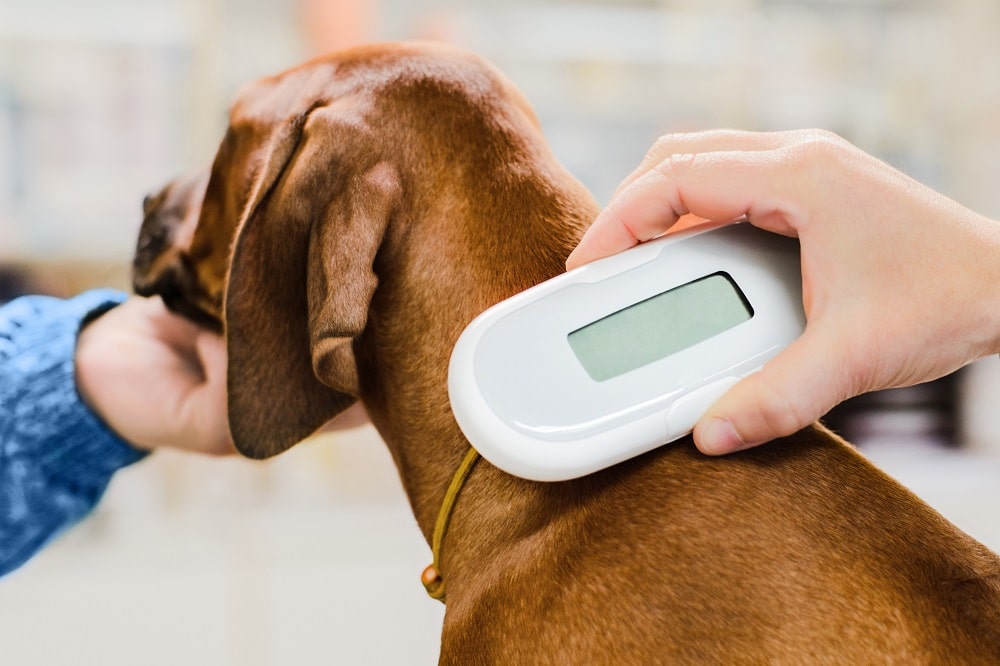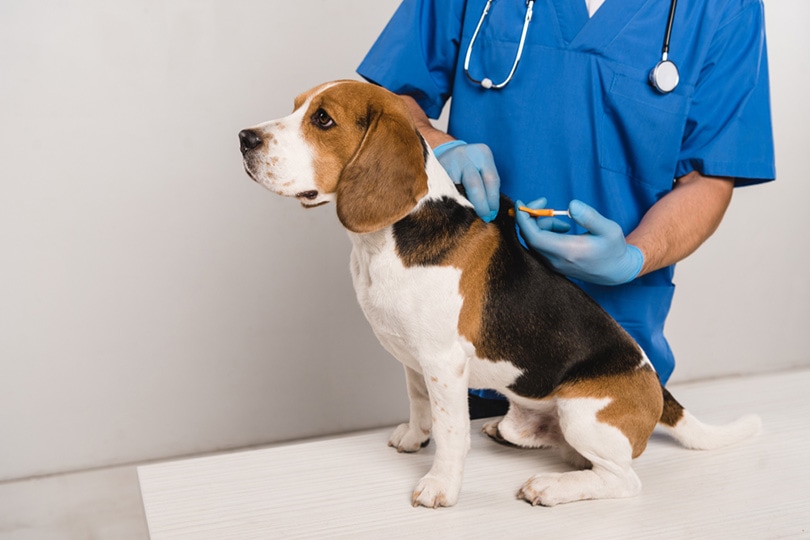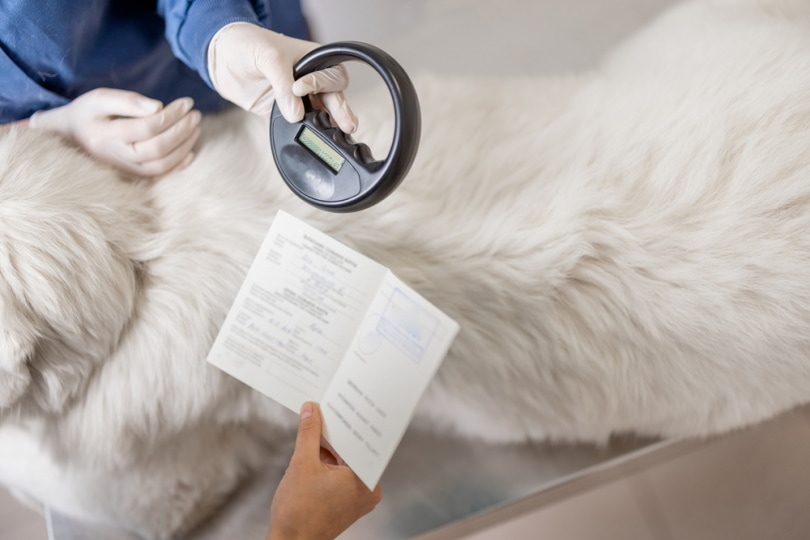
More and more people are getting their dogs microchipped, but many people still have questions about the procedure. One of the top concerns that people have is the potential expense of the microchip and the microchipping procedure. You might be pleasantly surprised to find out how affordable microchips can be, but it’s important to understand all of the potential expenses.

The Importance of Having Your Dog Microchipped
If you follow animal news, you know that pets are returned to their homes regularly, thanks to the benefit of microchips. If your pet goes missing and someone else finds them, any vet clinic or animal shelter can scan for the microchip, getting your contact information from it. In many instances, having your pet microchipped can also be used to prove the pet belongs to you if someone who finds them attempts to keep them.
Most vets recommend microchips for all dogs and cats. It is a more reliable way of ensuring your pet gets home to you than collar tags. If your pet is a rescue that has previously been microchipped, you will be able to update the information with the servicer to reflect your new ownership.
The Microchipping Procedure

The microchipping procedure is an easy procedure, and when possible, it’s performed while your dog is under anesthesia for its spay/neuter procedure or other procedures they may receive when young. However, microchipping can be performed quickly and easily for a dog that isn’t anesthetized as well.
The microchip is kept inside of a single-use injector with a large needle on the end. Microchips are approximately the size of a grain of rice, which is why the needle needs to be large, but they are usually put in between the dog’s shoulder blades in a quick procedure that many dogs don’t even seem to feel. Sometimes, your dog may yelp during the procedure, but the discomfort is over quickly. Microchipping also usually doesn’t cause bleeding and no bandage is needed to cover the area.
How Much Does It Cost to Microchip a Dog?
The cost of your dog’s microchip will vary based on where it’s done. Shelters and rescues often have the resources to put microchips into their pets before they are adopted. Some of these facilities will charge you an additional fee to microchip your dog, but you can usually expect it to cost $20–$50.
If your vet performs the procedure, then you’re likely to spend $40–$80, and this cost is unlikely to be impacted by geographical areas, but it may be impacted by individual vet clinic pricing. Microchip clinics put on by animal rescues may offer $10–$15 microchips, and in some instances, there may not be a charge.
One cost associated with microchipping that many people overlook is that some microchip companies charge a membership fee. You may need to pay an up-front fee to register your dog’s microchip. While they will keep your information on record and make it available to people who call with your dog’s microchip number, they may not offer extras.
Sometimes, these companies will send you emails and letters indicating that you need a membership to maintain your pet’s coverage. This is not the case, but memberships can often provide resources like missing posters, notifications to people in your area if your dog goes missing, and vet information lines.
Additional Costs to Anticipate

Some vet clinics may charge an additional fee for the microchipping procedure. They may also charge an office visit fee if the microchipping takes up an appointment slot, as opposed to it being done during another procedure. Additional expenses can vary significantly between clinics, so it’s extremely difficult to say how much it might be.
Generally, clinics won’t charge additional fees on top of the microchip and procedure because their time and expertise are usually built into the cost of the microchip. Some do, though, so it’s important to request an estimate before you schedule your dog for their microchipping.

Will My Dog Need a Repeat Microchipping Later?
Microchipping is usually a once-in-a-lifetime procedure. There are rare cases in which the microchip can’t be picked up by the sensor later on, though, and in even rarer cases, the microchip may fall out right after the procedure.
If your vet has checked over your dog thoroughly for a microchip and their scanner isn’t picking it up, then your dog may need to have the microchipping procedure repeated. If the microchip falls out within a few days or weeks of the procedure, then most vets won’t charge you for a new microchip. If your dog is microchipped and their microchip isn’t picked up on scanners multiple years down the road, then you’ll likely have to pay to have the procedure repeated.
When your dog is being scanned, ensure they are scanned in all areas of their body for the microchip. Although they are placed between the shoulder blades, microchips can migrate in the body through muscles and fascia, sometimes ending up further down the back or in the lower part of the chest. Your dog’s microchip isn’t going to migrate into an internal organ or cause a medical problem.
Does Pet Insurance Cover Microchipping?

It will be important to check with your pet insurance company to find out if they will cover your dog’s microchip. The majority of pet insurance doesn’t pay for this procedure because it is considered part of preventive or routine care, which are typically not covered. Some pet insurances do allow you to add policy riders that will cover preventive or routine care. There are very few pet insurance companies that will cover any type of preventive or routine care for your dog, so it may be difficult to find one that will help cover your microchip cost.
What to Do if the Microchip Falls Out
Microchips are pretty distinct in appearance, so you’ll likely know what you’re looking at. At minimum, you’ll look at it and note that it’s something you’ve never seen before. If your dog’s microchip comes out and you find it, take the microchip with you on your return visit to the vet so they can scan it to verify it was the microchip in your dog. As strange as it may sound, there’s always a slim possibility that you’ve found a microchip belonging to another animal.
Your vet will thoroughly check your dog for a microchip via the scanner. If your dog’s microchip has fallen out, then there will not be anything residual that will pick up on the scanner and your vet will know that the microchip has, in fact, come out. They will be able to perform the procedure again and install a new microchip. Since the first one came out, they may ask you to bring your dog back for a recheck in a few days.

Conclusion
The importance of having your dog microchipped cannot be exaggerated. Microchips have proven time and time again to get missing pets home, sometimes even years after they go missing. This procedure is quick and easy. Your dog is unlikely to experience significant discomfort during microchipping, and your dog will never need their microchip repeated, except in rare instances.
Featured Image Credit: Pixel-Shot, Shutterstock
